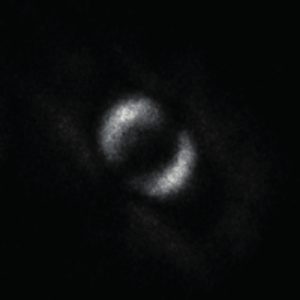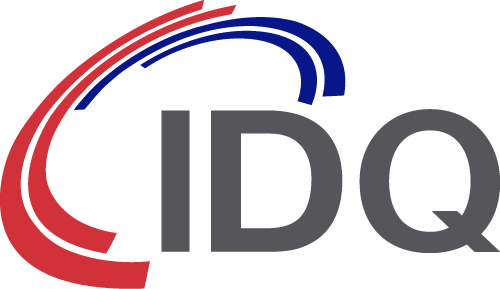Quantum Computing Market Review: Q3 2019
The third quarter of 2019 has seen further strides in the quantum computing industry. From claims of quantum supremacy and QRNG standardisation to more powerful systems and spooky action, we look at the news stories that have made an impact.
Google claims quantum supremacy, albeit by accident
Perhaps the most ground-breaking news of this quarter came close to its end, when a paper from Google and NASA claimed that the organisations had achieved quantum supremacy. The 54-qubit quantum processor named Sycamore performed a complex task, which would take a classical supercomputer 10,000 years to complete, in around 200 seconds.
The headline dominated many newsfeeds and even prompted US Democratic candidate Andrew Yang to warn (perhaps prematurely) of Google’s ability to break today’s encryption standards.
The furore appears to have been caused by accident as the paper was promptly taken down without comment, suggesting its release was premature. Nevertheless, this didn’t stop the scientific and technological communities from calling into question what is meant by ‘quantum supremacy’ or debating if the authors had achieved it at all. Rival manufacturer IBM has been particularly vocal in its recent post.
The paper was officially published almost a month later. While the results of this experiment will continue to be debated, there’s no doubt that it’s highlighted the risks quantum computing poses and the importance of quantum-safe security solutions.
Quantum computers continue to get more powerful
Quantum computing development has continued to accelerate at a rapid pace, with IBM announcing its 14th quantum computer. Available from October this year, the latest IBM Q will be its most powerful to-date, boasting 53 qubits compared to the previous generation’s 20.
The tech giant has been busy in other areas too; opening its Quantum Computation Center in New York State and bringing a fleet of ten quantum computing systems online, which is expected to grow to 14 in the near future.
Meanwhile, fellow manufacturer D-Wave has announced its fifth generation, 5,000 qubit system. Advantage, as its to be known, has two and a half times the qubits of its predecessor and will be available from mid-2020. It’s already attracted a buyer in the Los Alamos National Laboratory.
Partnering to promote quantum computing
In our Q2 market review, we covered some of the efforts to raise awareness around quantum computing. We’re pleased to see this trend continue after it was announced that IBM and the Fraunhofer-Gesellschaft, one of Europe’s leading organisations for applied research, are teaming up to promote quantum computing in Europe.
The partnership, described by President of the Fraunhofer Gesellschaft Professor, Reimund Neugebauer, as “a landmark quantum computing initiative”, will see an IBM Q System One quantum computer to be installed in Germany; the first of its kind in Europe. Its aim is to develop expertise and new strategies for the use of quantum computing.
Meanwhile, the German federal government will be investing €650 million over the next two years to promote the advance of quantum technology from basic research to market-ready applications.
Early into Q4, we’re pleased to see further efforts take place after quantum computer manufacturer IonQ announced that it has secured $55 million in funding to make quantum computing more accessible to businesses and lower the entry barriers for developers.
QRNG standardisation takes a leap forward
This quarter also saw a major step forward in the standardisation of Quantum Random Number Generators (QRNGs) after a draft recommendation named “Quantum noise random number generator” was consented as an international standard during an ITU-T meeting in Geneva.
The newly consented draft recommendation, which is expected to be approved within 2019, deals with a common architecture for quantum entropy sources. This common architecture will allow suppliers and users to make a clear and simple distinction between QRNGs and other physical random number generators called True Random Number Generators (TRNGs).
ID Quantique was pleased to be one of the main parties involved with this recommendation, with CEO Grégoire Ribordy commenting: “The QRNG standard will give the ICT industry a random number generator with proven unpredictability. Success for this standard would be its adoption by most or all QRNG vendors as well as some national security agencies.”
Scientists capture something spooky
For the first time ever, scientists have captured an image of a phenomenon Albert Einstein once described as “spooky action at a distance”.
A team of physicists at the University of Glasgow captured the event, known more formerly as Bell entanglement, whilst researching the topic in July. Despite it being harnessed in practical applications, such as quantum computing and cryptography, it has never been captured in an image. The team has published its findings in the Science Advances journal.
IDQ in the news
Alongside our work in QRNG standardisation, we were pleased to be featured in a number of important projects and announcements.
October sees the launch of OPENQKD; a three-year European research project for Open Quantum Key Distribution that will test quantum communication infrastructures in several countries across the continent. The 38-strong party will include three other Swiss organisations, who we will work with on four use cases: Quantum Vault, Smart Grid, Secured Datacenter Replication and Encryption for Long Term Storage.
We were also extremely proud to be awarded the Innovation Prize 2019 as recognition for our innovative role in quantum technologies and celebrated the anniversary of our exclusive US partnership with Quantum Xchange, with which we provide commercially viable QKD-secured links across the Phio network.
As awareness around quantum computing and its associated cybersecurity risks permeate the industry further, we welcomed our new partnership with renowned IT service provider dacoso to offer quantum-safe data encryption in a highly secure and future-proof way and have also joined forces with Thales and ISARA to combat the future security threats of quantum computing.
Like to keep up-to-date with the latest quantum computing and cybersecurity news? Sign up to our monthly newsletter.




